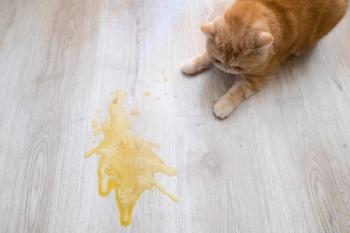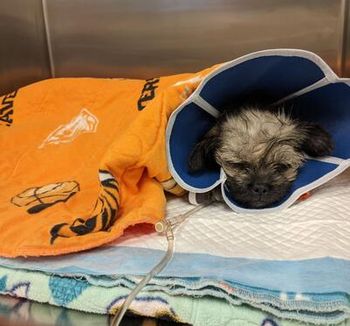
Veterinary scene Down Under: Australia approves world-first single-dose chlamydia vaccine for koalas, and more news
Updates on a new vaccine to help protect koalas from chlamydia, and a virtual learning environment providing on-demand professional development for species-specific and mixed-practice veterinarians.
New vaccine to help protect koalas
In a world first, a new single-dose vaccine has been approved in Australia to protect koalas from infection with chlamydia, a disease that can cause painful urinary tract infections, infertility, blindness, and even death.
The vaccine was developed by a collaborative research team led by Peter Timms, a professor of microbiology at the University of the Sunshine Coast, and included support from Julien Grosmaire, BVetBiol, BVSc, GC-SAUA, from Endeavour Veterinary Ecology (EVE).
“At EVE, we work on major koala health and population management projects, focusing on areas where chlamydial disease is having a significant impact. Our team is a specialist provider in this field, applying a holistic model, using a range of interventions to tackle population declines, especially in regions where koalas are at risk of local extinction from this disease,” Grosmaire told dvm360®.
“I'm very proud to be one of the many people and organizations involved in this work. Thanks to our management programs, we have been able to deliver large-scale longitudinal trials on the vaccine's effectiveness and safety. As a veterinarian, I have been involved in some of the trial designs, recruitment and vaccination of animals, health checks, and research sampling, as well as some writing up and interpretation of findings, which has been truly rewarding outside of my usual clinical work.”
In koalas, chlamydia can lead to significant adverse welfare due to painful keratoconjunctivitis that can leave koalas blind, and urinary tract infections causing severe cystitis and urine scalding.
“Severe chlamydial infections can be fatal. Chlamydia can also cause reproductive disease leading to infertility, which, on a population level, can lead to significant declines and even local extinction, particularly when combined with other threats like habitat degradation, climate change, and human-animal interactions,” said Grosmaire.
“The University of the Sunshine Coast is now seeking funding to produce and distribute the vaccine to wildlife hospitals where the vaccine can be administered to healthy koalas being returned to their home where they may be at risk of reinfection. Unfortunately, infection does not confer immunity from subsequent infections. Koalas treated with antibiotics are at risk of reinfection when returned to their home population where chlamydia might be endemic. Hence, the vaccine will hopefully prevent disease [from] developing when individuals are next exposed to the bacteria.”
Grosmaire said that although the vaccine is not a silver bullet for solving the chlamydial disease problem in koala populations, it is another useful tool that could help manage the threat the disease poses to koala welfare and the species' survival.
“I would love to see more support for management programs in severely affected populations. With enough resources, we know we can treat chlamydia out of populations, turn them away from their extinction trajectory, and use the vaccine to safeguard them from the pathogen's reintroduction,” Grosmaire said.
“We are currently analyzing some data on the vaccine's potential therapeutic effects and hope to publish on this trial soon. The University of the Sunshine Coast team hopes to be able to make the vaccine available to veterinarians in all wildlife hospitals by the end of 2026.”
Virtual learning with Vetuosity
Vetuosity is a subscription-model virtual learning platform for the veterinary profession that was developed to fill the niche of providing short, accessible, affordable, and on-demand professional development content for species-specific and mixed-practice veterinarians.
The Vetuosity platform, cofounded by veterinary practice manager Jason Chuck, BCom, MBA, CPA, and Gemma Chuck, BVetMed, PhD, MAICD, was formally launched earlier this year and is already popular with veterinarians eager to access on-demand video learning.
“Our vision is to empower veterinary teams to master the skills they need in the moment they need them. And we do this by providing practical, relevant, and accessible tools that enable veterinary teams to deliver extraordinary veterinary care,” Jason Chuck said.
“My wife, Gemma, and I are really passionate about the future of the veterinary profession and, with our broad experience in the veterinary profession, it was only natural that we wanted to create a learning platform that allowed veterinary teams to develop extraordinary veterinary skills.”
From the outset, the focus of Vetuosity has been the provision of practical, relevant, and on-demand short educational videos. The platform also offers info sheets, cheat sheets, checklists, and newsletter articles.
“We knew that learning through a virtual environment has increased in popularity over the past decade but the majority of content was long-form, prerecorded, or live webinars with a predominant focus on companion animals and equine. Provision of high-quality content for the production animal sector was very limited,” Jason Chuck explained.
“We also realized that learning styles have changed and that provision of bite-sized media content across all species was limited, and where it does exist it was of variable audio and visual quality. Frequently vets and nurses need to recall procedures under significant time pressure. We saw an opportunity for a virtual learning environment that offers short, evidence-based, and peer-reviewed 3- to 6-minute videos detailing procedures, allowing the user to perform them competently and confidently.”
As the Chucks live and work in rural Queensland, the initial focus of content development for Vetuosity was on cattle and equine to offset the previously limited learning resources available for these topics.
“In production animals, supportive tools and resources were limited and when available, rarely demonstrated the best-practice standard of care. Sole production animal veterinarians are becoming less common, with many rural veterinarians now relying on companion animals in the face of a declining production animal market. This has resulted in less exposure of necessary caseload for new and recent graduates,” Jason Chuck said.
“We think it’s vitally important to support [veterinarians] in the field to ensure a high standard of animal care and to provide the support and training necessary to perform procedures. There is also a knowledge gap between graduation and specialization in rural practice. The option for specialist referral is often limited for rural clients, thus if rural [veterinarians] are able to upskill in a wider range of procedures, they can provide clients with a broader range of treatment options. Face-to-face support and training for rural veterinarians can be challenging in terms of accessibility to expertise."
Vetuosity was designed to be of interest to a wide audience including veterinary students, new or recent graduate veterinarians, those veterinarians returning after a career break, or those diversifying into another discipline.
“Vetuosity fills a knowledge gap by providing veterinary professionals with the tools needed to succeed, empowering them to provide a high standard of care for their clients. We know one of the top 3 satisfaction priorities for employed veterinarians is peer support and, aside from better remuneration, the lack of opportunity to develop new skills is the main reason why employed [veterinarians] would consider leaving their role,” Jason Chuck said.
“We hope that Vetuosity will assist in addressing these challenges and support veterinary teams to develop new and different skills. If [veterinarians] feel more empowered and supported in the workplace, then recruitment and retention rates should improve and attrition rates decline. It is the aim for Vetuosity to assist in future-proofing our profession with a capable and sustainable workforce.”
Newsletter
From exam room tips to practice management insights, get trusted veterinary news delivered straight to your inbox—subscribe to dvm360.




